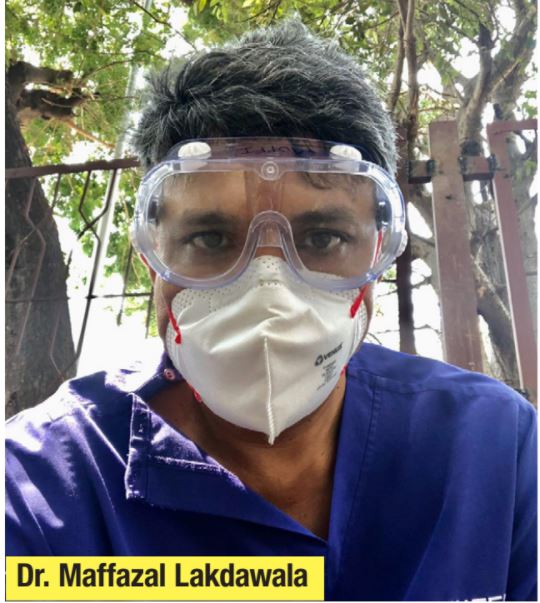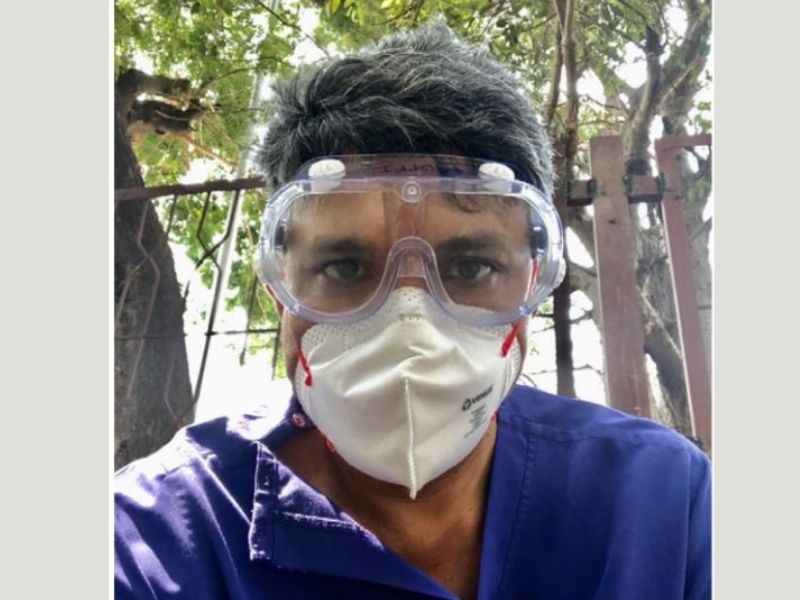
This is more a question that the government should be concerned about. As a parent your concern should be that if your children are to go back to school how sure are you that the rest of the children are not carrying the virus into the school. One can monitor the staff and teachers but difficult to monitor the kids. Therefore the question one needs to ask oneself is are your kids safe enough for the school or are the schools safe enough for your kids.
Once the children are back in classrooms what precautions do we need to take from air purification and ventilation view point?
Most of our kids are used to air conditioned classrooms. I think first and foremost we need is to do away with that. We need to have as much cross ventilated rooms as possible. We need to make sure that there are enough fans and a proper ventilation system. We should also ensure that the temperature of all the kids is checked at entry, and if any child has a cough, cold or a fever it is the responsibility of the parent not to send the kids to school or for the schools to send the kids back home immediately. Another thing that the schools need to make sure is that they sanitise their bathrooms and someone is dedicated round the clock to sanitise the bathrooms. There should be enough of soap and water for children to wash their hands and sanitizers placed at various areas around the school as well.
Is it safe for young children to wear masks? And at what age should masks be made compulsory for children
It is safe for children of age 5 and above to wear masks. Make sure that the masks are not too tight or that asphyxiate them. Make sure that they do not wear masks while running or playing active sports.
What do you think could be the long term effects of the pandemic on children – Physical, mental and emotional health?
The last pandemic was almost 90 years ago. We are yet to know the long term effects on the mental health of kids. They have suddenly lost an entire year and stand the risk of losing another year which are important for their developmental profile. From a physical point of view, as long as kids are actively playing and not addicted to the TV and playing only indoor games they should be fine. Parents need to supervise and restrict screen time and maybe substitute individual activities with group activities such as a movie night. Children need to have some form of outing and outdoor time that should be supervised by the parents. Parents should also be mindful of the food that children are consuming in order to prevent unnecessary weight gain and the diseases associated with it by planning innovative yet healthy food options and not reach a level of saturation. Eye health due to prolonged exposure to screens (home-schooling etc), vitamin D deficiency due to prolonged duration indoors are also some things that need to be kept in mind. Mentally and emotionally I believe that it is important that we as caregivers be available to our children, constantly speak, discuss and educate them of the current scenario (but not overdo it to risk anxiety and mental fatigue). Not being able to socialise and being physically distant sometimes even with family members and close friends can potentially have an effect on their mental health which could lead to tantrums and emotional distress. This also is an ideal situation to buliding on and encourage the child to take on a hobby of interest. It could be music, art or any extracurricular activity that may interest the child. With many online options this is one of the most productive ways to deal with the lockdown and current restrictions.
What are your top recommendations to reduce the spread of the virus in schools?
1) Most important that children, staff and teachers should be masked up at all times.
2) All classrooms should have open air rooms with plenty of cross ventilation and lots of fans so that there is no static air in the classrooms.
3) Hand sanitisers should be available at frequent spots in the entire school, there should also be enough of soap and water for children to wash their hands. Washrooms should be sanitised at regular intervals.
4) All dining areas should be supervised and children should not be allowed to share their food at any point of time and should be physically distant.
Do COVID-19 symptoms differ between children and adults?
Most common symptoms are fever, cough and cold, and diarrhoea in some cases. Majority of the children are asymptomatic or mildly symptomatic.
Is there a concern for high risk children? e.g. those suffering from asthma?
Asthma should not be too much of a concern with COVID -19. What should be of concern is the Toxic Shock syndrome or the Kawasaki syndrome. Any child suffering from persistent fever and persistent diarrhoea with bloody stools should be taken to the paediatrician immediately.
Can children be asymptomatic carriers?
It is most likely that majority of the children are asymptomatic carriers. There will be a very high risk for elders at home especially grandparents and most likely transmit the virus to them unknowingly.
How can school staff safeguard themselves and children from the virus?
The staff and especially teachers are role models for the children. So they should ensure that they are masked up at all times. They should make sure that there is social distancing amongst the staff. Those that are assigned to monitor the kids while they are eating should ensure that the children are socially distant and that they are not sharing their food. Those who are assigned to clean the washrooms should ensure that they are sanitised at regular intervals and standards are maintained and that children are following COVID appropriate behaviour. If staff and teachers are eligible for the vaccine they should vaccinate immediately. If they notice any symptoms of COVID themselves or amongst their family members they should not go to school and get themselves tested immediately. Another thing that schools could do is ensure that all staff and teachers are tested at least once weekly with RTPCR and probably during the mid-week they could do the Rapid Antigen Test. Schools should make this practice compulsory for all the staff.
What could be the potential mental health outcome of isolation and social distancing?
Lockdown, curfews and isolation can potentially cause anxiety and fear among children. Not being able to meet friends or attend birthday celebrations or sporting activities can put a toll on their mental health, causing them to be worried, anxious & scared.
How can we educate children about COVID -19 in order to reduce discrimination amongst children?
I believe that children learn from us and we should lead by example. Our actions and words are what our children will eventually pick up. As adults we need to empathise with those that are affected by the virus, be supportive and not discriminate and simultaneously teach our children the same. There is a lot of social stigma attached to this infection and it is important that we teach our children not to discriminate against those that have been afflicted by it. It is also important that we ensure that our children are not scared of the virus and inform them that there are a lot of people who get the virus and come of it unscathed. It is important for us as parents to teach our children the important of masking and also tell people who are not wearing masks to do so and to physically distance themselves from those that are not complying to social distancing norms.
What is a COVID Protocol your kids follow? What are their ages?
My son is 7 years of age and he is masked up at all times as he sees his father always masked up. He also does point out to people that aren’t wearing masks or not wearing masks properly. The only time he doesn’t wear a mask is while practising cricket. He has his close circle of four friends who he regularly socialises with. I know that all the mothers have worked out certain safety protocols to make sure their bio bubble is never contaminated and not safe. You have infants also at home, any special COVID-19 protocol for them? My twins are of 9 months; we ensure that they are kept out of harm and that they are at home and do not meet strangers. Those that are not tested regularly would only meet them wearing masks at all times and use hand sanitizers. I get tested every day as that is the policy at H.N Reliance hospital since I meet patients that could be positive. If I do not get tested for a few days by any means then I wear a mask at all times and do not go too close to them. That is probably the best thing we can do to keep our kids safe. My son is not allowed to meet the twins until he has had a shower or if he’s been outside and has washed his hand thoroughly. We have also invested in face shields specifically for babies that they use when they go for their regular doctor visits.
Do you have guests coming over at home?
No, we are also maintaining our very own bio bubble. Between our parents and a handful of very close friends who understand the nature of the pandemic and respect all safety measures, we don’t have anyone coming over.
Should parents look at vaccination options?
As long as you fall under the age limit of the vaccination guidelines or alternatively have the option to get vaccinated by being a frontline or healthcare worker, you should by all means take the dose. This will only help the community cut down the spread in the long run.
Is it safe to visit a dentist or an ophthalmologist?
The pandemic is here to stay, we may as well consider the virus as part of our daily lives. But that does not mean we ignore it. While visiting a dentist or an ophthalmologist do make sure all safety precautions are taken and we maintain the local COVID – 19 rules and regulations strictly.
